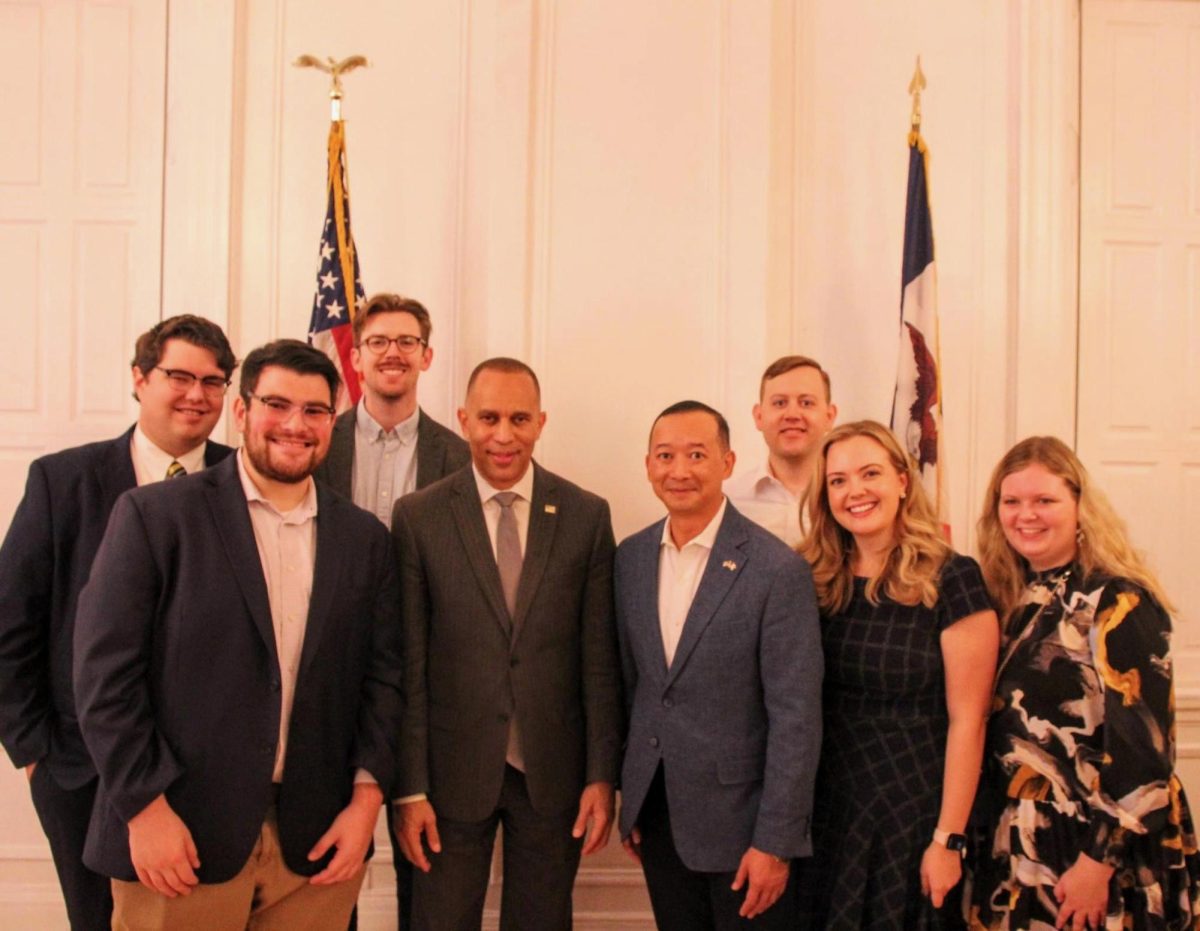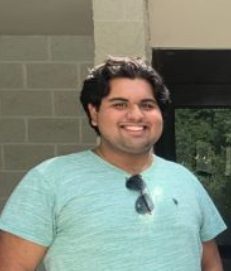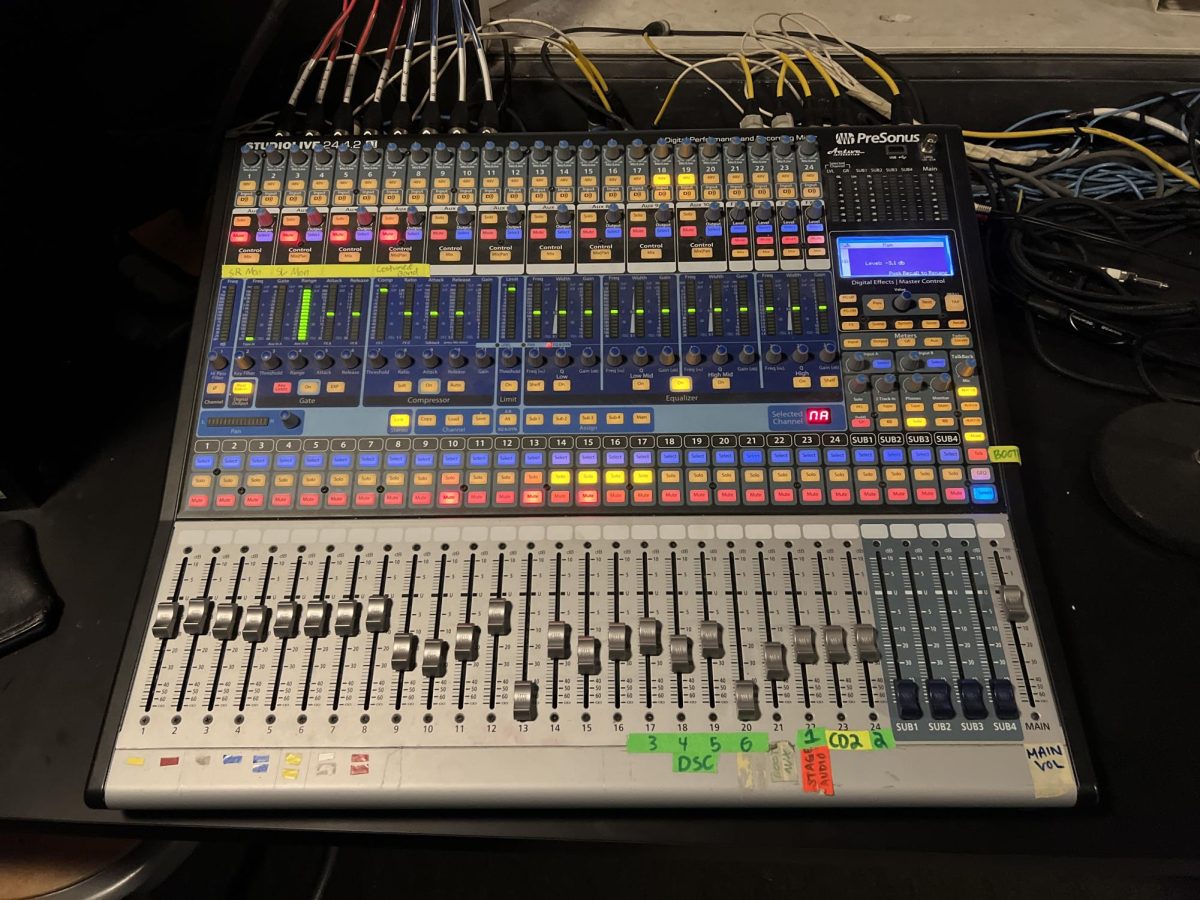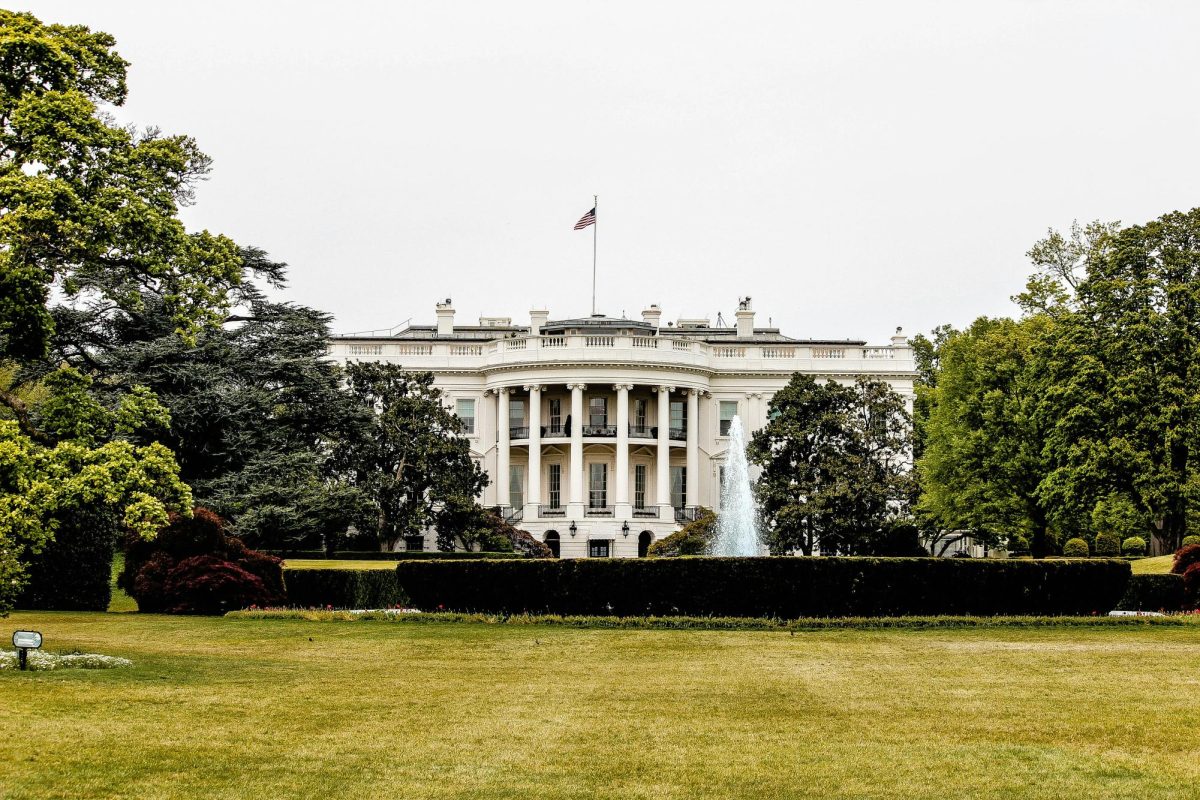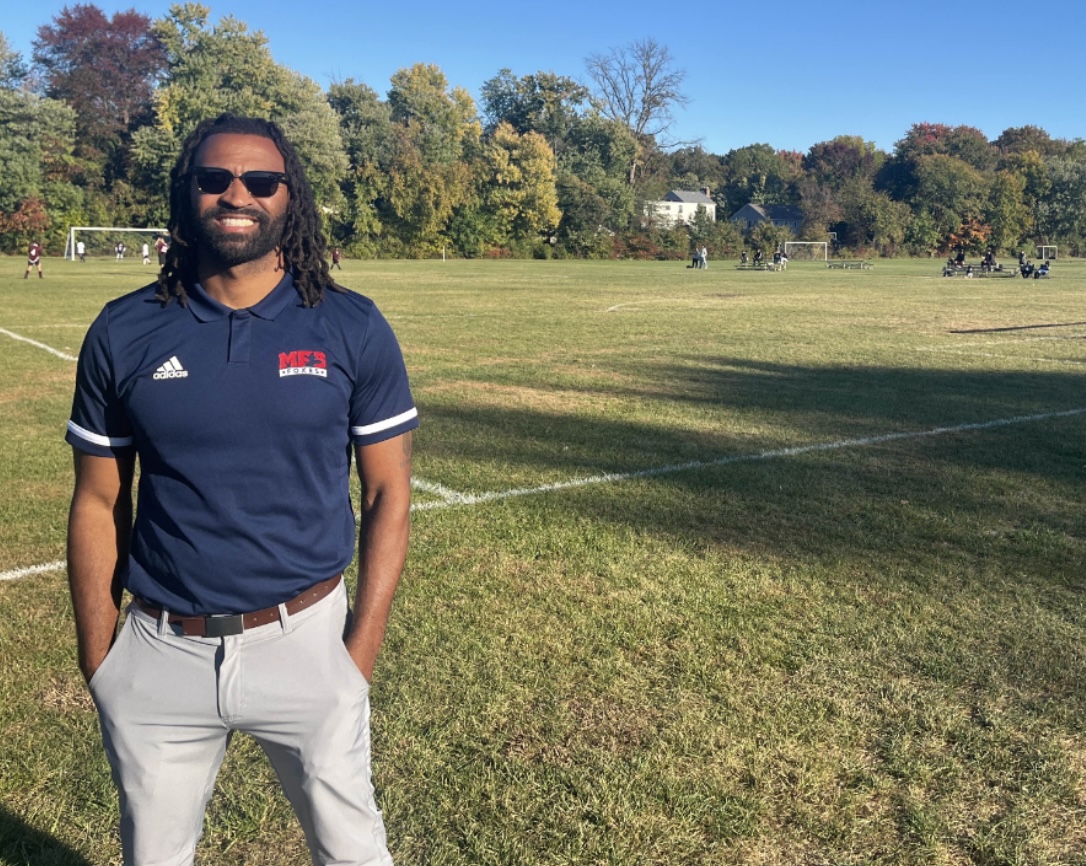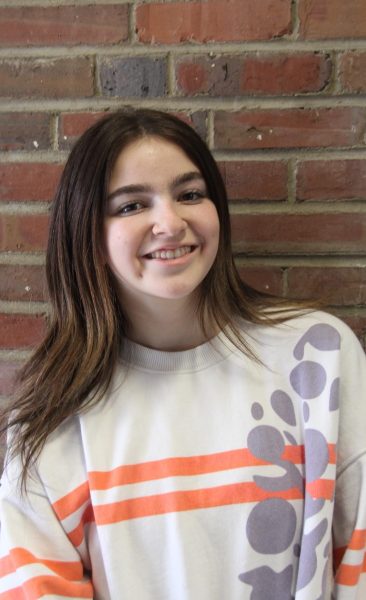In this interview, MFS WordsWorth spoke with Shelby Deibler ’20, former WordsWorth Editor-in-Chief. From December 2023 to December 2024, Deibler worked as an Operations Manager and Scheduler at Lanon Baccam for Congress (IA-03) in Des Moines, Iowa. Deibler spoke about her evolving role in the campaign, her submersive experience in Iowa’s local politics, and how her time at MFS impacted her professional path and outlook.
Note: This interview, which has been edited for length and clarity, was conducted over Zoom.
Charlotte Nesevich: What was your role in the Lanon Baccam campaign?
Shelby Deibler: I worked in Iowa’s Third District, Des Moines’s south. It has some urban sides, but also has some very rural parts of the district. It was considered a red-to-blue race, which means that the [Democratic Congressional Campaign Committee] “D Triple C” put the campaign on a list of super competitive races that have the chance of flipping from Red Republican to Blue Democrat. So, [it was a] pretty competitive race.
I worked originally as the Digital and Finance Assistant, which means that I worked on the finance team, because if you want to run for Congress, you need to raise a lot of money. There’s a joke in the campaign world that finance staff are the first hired, last fired, which tends to be relatively true, because, like I said, it is a necessary evil to raise a lot of money so that you can buy things like TV ads, which happen to be cheaper in Iowa than, like say, the Philadelphia region. You host fundraisers, or find hosts to host fundraisers that you staff and support. You are raising money to basically keep the lights on, sometimes in your campaign office. But, all of those things happen because candidates are making calls asking donors for money. They’re going to fundraisers. They’re making quotes that end up in a fundraising email or direct mail. All those little things add up to a lot of money so that you have the chance of winning. They describe it as a war chest.
My role later transitioned to Operations Manager and Scheduler. Because, as you can imagine, on a campaign, there are a lot of moving parts. You kind of have to be a jack of all trades. Not all the time, some people are specialists, but I feel like I’m more of a generalist. I worked as primarily a scheduler, so that meant that I was preparing all the briefings, because your candidate needs to be briefed on policy issues, who they’re meeting with, arranging their calendar so that it’s the most efficient, not only for your team, but also for the candidate, because they have personal obligations. So, it’s a really dynamic role, and I really enjoyed it.
I say this all the time, but being on a campaign, even though I’m still relatively new, is the best place to get your feet in the water a little bit [while] trying to figure out what path you want to take in politics or government. It allows you to have so many diverse experiences where you go, “Oh, I actually don’t really like that,” or, “I really want to do more of this,” and, “I got to meet this person,” because in a short amount of time, you accomplish a lot.
CN: How did your role change leading up to, during, and after the election? Can you explain the timeline, including your arrival and how your responsibilities changed during and after the election.
SD: So, Lanon launched his campaign in late October or early November of 2023. I was not on the staff at that time. Typically, a campaign starts with just a campaign manager who acts as a finance fundraising manager as well, in addition to all the political angles of it. From there, from the get-go, your job as a candidate is to raise as much money as you can so that you come off as competitive to national donors. That gets you a spotlight. Obviously that’s important, but I think what’s even more important is connecting to your voter base within your own district.
Speaking from the Democrat side here, that means going to local party meetings, going to backyard or living room informal meetings with neighborhood groups. Especially in Iowa, it was very much a retail-politics-based community. These are people that are used to hosting future presidents in their living room. It really shows you, like the joys of American democracy, that anyone can become the President or anyone can run for Congress, that you could start campaigning literally in your own living room or your neighbor’s backyard. It doesn’t have to be some big formal event where you’re giving these, you know, grandiose speeches. It could be really casual and informal.
In January of 2024, our race was added to that D Triple C, red-to-blue list, which definitely put us out on the map as a more competitive race, so national folks started paying attention. And then from there, I mean, like I was saying, you’re doing a lot of the same. You’re connecting to more people, you’re making speeches, you’re going to the monthly party events, and traveling around the district. We were visiting all 21 counties before the primary. We did have a primary in our district, so there was another Democrat that was seeking election, and we ended up winning. But between all that, your call time – that’s what we call calling donors to fundraise every day – June was our primary. So, we try to become more of a national profile that people want to pay attention to. That means doing local media. That means trying to be as public as possible, going to local media, that type of thing.
Sometime in July or August, my role transitioned to being more of a scheduling perspective, because you’re spending all that time trying to build up the campaign.
Campaigns are a lot like startups. You’re building a plane while you’re flying. [There] is a lot happening at once, and it feels like that, even towards the end of the campaign. So my role transitioned to being scheduling and operations, and I was still doing fundraising and finance stuff with the rest of the finance team, but it was because, you know, we had leader Hakeem Jeffries coming to town to do an event with us. We had Senator Amy Klobuchar coming. We had D Triple C Chairwoman, Suzan DelBene, coming to show support. All these people, doing what they call a deployment, to show their support for the candidate.
They do deployments because they want more people on their team, more people on their side, hoping that you get elected, or the candidate gets elected, that you have an ally in Congress or Senate. So as we started to get more national, my role started to pick up, to be preparing Lanon for a congressional level.
CN: How did you find yourself in this particular professional position with this particular campaign? Have you always wanted to go into politics in this capacity, where you’re actually in that office, campaigning for someone?
SD: Here’s how I have always looked at it. I didn’t necessarily know that I would want to be on a campaign, or what a government job even looked like when I was applying to Wellesley. But even when I was a student at MFS, I knew I wanted to be in the sphere, so I kept trying to align myself with that, or talk to people that had experience. And most of the people that you talk to that work in politics, or if they’re a career government person, they all have started on a campaign because it’s the best place where you get to learn the most in a short amount of time.
I keep joking, as I’m interviewing for other jobs, that working on Lanon’s campaign was like a mini grad school, because I feel like I learned so much more. Although I had worked there remotely for about a year, I had learned more in seven months full-time in-person than I did in four years of college. I think I had a great education, I just think that the day-to-day of what it actually takes to get stuff done is not necessarily something you’re going to learn from a textbook. It’s going to be real life, when you make an awkward call. Before this, I’ve never had to cold call someone I don’t know, and ask them to do a whole bunch of stuff for me. You don’t learn that in school, or how to negotiate that or talk that through with a stranger, and that was a lot of [what] I feel like the job is.

Because I don’t know, I’m not from Iowa, I’m not from this community, but I have to have this community leader trust me enough over the phone in five minutes, and also give them my trust that this event is going to go well, so that I feel like is the essence of working on a political campaign.
Back to the rest of your question about how I ended up in Iowa: I know it sounds silly, but I was really invested in watching the 2019 Democratic Primaries, and I saw the 19 candidates go to the Iowa State Fair. I saw them traveling all around Iowa, obviously, South Carolina, New Hampshire, all the caucus states. I got really excited about the opportunity to go and campaign in Iowa. And then just a few years ago, the Democrats decided to not have Iowa as the first caucus state. So I kind of thought that dream was like not going to be a reality anymore.
And then, lucky me, I ended up in Iowa. And I was actually very excited that I got to, you know, put that feather in my cap, so to speak, that I started in Iowa. Because, like I said, a lot of the mentors that I’ve made throughout the years are quite a few years older than me. And they always talk about, “You know, like I graduated an election year, and I went to Iowa for a year, and I knocked on every door in Waterloo.” So I thought that experience would be lost, but it wasn’t. I feel like I got to work on a really cool campaign. Despite losing, it was still a really interesting experience, and I’m so glad I moved out there.
CN: Are you currently still with Lanon Baccam, or has that chapter ended?
SD: Nope, that chapter has ended. When the campaign is over, your contracts are over. So that’s how most of them work, and it’s not personally anything like the voters have decided, right? The bank accounts are closed. You know, the money that you raise and spend in ten, eleven months, or however long you run, is gone. That’s just how it is.
But it’s also a good time to reflect on what you want to do next. And I think that’s the fun part about campaigning, or working in government. I know it seems like an unstable career path, but I feel like so many of my mentors, who have campaigned before or worked in government, say that everybody tries to help each other, and landing the next role is possible.
It seems impossible after defeat, but trust me, it’s not. It’s just an industry that is very fast-paced. And then there’s also that lull, in November and December because of the holidays, and post-election time, where people just need a break to recharge, and then the new year comes and it’s back to hiring and getting the wheels turning again.
CN: How would you say that your time at MFS influenced your professional path? How have the Quaker spices influenced your work or materialized in your everyday work life?
SD: I think just in general, I am pretty good at finding peace in my personal life, just because this industry that I found myself in is very chaotic. It’s always being available, where I’ve found that compared to some other people that I’ve met, and this is nothing against them, I just feel like I’ve had this training from, my Quaker background and from MFS specifically. I know I need to take time out of my day to go on a walk, to go do hot yoga, to do something where I’m disconnected from my phone and truly grounded in that space, because people need to unplug. And I don’t necessarily mean technology, but sometimes, being in this work is so emotionally intense. You are working very closely with your coworkers; tensions can be high. You’re talking to the same five, six people all the time, and it’s not a nine-to-five. You’re always working, but you do get long periods of time off at the end.
I also feel like my conflict resolution style definitely reflects what I’ve learned through Quaker decision-making and Meetings for Worship for Business as well. I was Meeting for Worship for Business Clerk, and I feel like I am constantly reminded of times where somebody is saying something that you don’t agree with at all, but you have to sit there politely, listen respectfully, and nod your head, not necessarily in agreement, but just that you’re hearing them. You’re listening to them.
I think consensus-building is a big part of it as well, and also trying to get people on your side is another thing. I feel like I’ve been able to negotiate things better, just because I come off more neutral, and I show that I’m listening. I can definitely tell sometimes that I’ve had Quaker training and other people have not. Everybody has their own perspective on how they walk into a conversation where they want something at the end of it, and that’s great. I want a lot of things too, but at the same time, sometimes you kind of have to listen and say, “Let’s come to a resolution that makes everybody happy.” Sometimes it is sacrificing what you wanted. But I think I definitely see the community-minded approach to leadership. I see it a lot more now that I’m out of MFS. Going on five years now, that influence has stayed with me.
CN: Do you think that your experience representing Elizabeth Warren in the 2019 Mock Primary Election has had any influence or shaped in any way, the way that you interact with politics now, in the real world?
SD: I should preface that MPE happened right before we were sent home for COVID isolation. So my memory’s kind of blurred, and sometimes I am reminded, “Oh my gosh, I did that, I played Elizabeth Warren.” In that sense, yes, I did run a campaign before, but I think it definitely brought to light what it takes to actually run a campaign, because it was very different from running for class president, for example. MPE allowed me to see the different roles, and I think Clark Thomson’s leadership was especially a factor. He was very encouraging … He would say, “Oh, you want to write a speech, you should ask your friend to be a communications director or a speech writer.” Obviously, candidates had sway over writing their own stuff or putting together a commercial, but I remember spending some deep dives on the weekends looking up things like, what are political roles in a campaign? Who is a fundraiser, or what does a comms person, or a campaign manager do? I remember really researching it, and I was like, “I really like this. This is interesting,” because I feel like that insular knowledge, that of how a campaign is run is kind of kept from the public, and not necessarily because it’s a bad thing. I just think that campaigns in general are seen from the outside as grunt work for not a lot of reward. But I feel like, when you’re actually on them, there are a lot of good things that come out of it, not only professionally, but also personally.
Like I said, you’re working with the same people all the time; it can be a good thing or terrible thing, and all of my instances have been a great thing. I’ve met some really cool people. You’re all working for the same reason, towards the same goals, and I just think that MFS kind of showed me the way, not necessarily to a specific candidate or pathway or what have you, but really made me research it because I liked my experience so much with MPE.
CN: How would you say that working in this election in this specific role from the inside of a campaign has changed your perspective of politics, both at the local and national level?
SD: Regarding my perspective on campaigning, I’m leaving a lot more positive than I thought I would be. I thought I would lead the campaign being like, “I never want to do that again.” I feel like you either talk to people that love or hate campaigning, and I left loving it. I think that it is an admirable career path. I think that you have to be willing to work really hard for long hours for not a lot of reward. But I think the rewarding thing is that in my case, in Iowa, I got to know a community so intimately that I felt a part of it, and I was sad to leave. And I feel like I’ve grown up in a place my whole life, and I honestly don’t know that much about it.
As someone who had to go to every party meeting, to random farmer association meetings, from meeting people literally on their front doorstep during parades, from talking to people at the grocery store because they stopped me because I was wearing a campaign shirt, I felt like I really got to know a community that I in a way that I had never known before. And I think that that was really a beautiful thing, because I was a complete outsider going in.
Some people are [going to] say that’s the terrible thing about nationalizing politics, that carpetbaggers like me from New Jersey can go spend a few months in Iowa and get put on the national spotlight. But I don’t necessarily think that’s true. I think that people get into this work because they want good things to happen. They’re natural optimists, and working on a campaign allows everybody to work together to accomplish a goal that’s electing someone that’s going to share their shared values, their common hopes and dreams for their community, and to see it in real life, I think was really special. When you’re in those communities, you are talking to people that have lived there their whole lives, and they’re volunteering for free. They’re knocking on doors for free. They’re spending their weekend sewing a felt flag for your campaign, because they feel like you need decoration in the office like that. That’s the type of community member I aspired to be, and I got to see it in real life.
I think that the thing that I learned that I don’t like so much about campaigning, and politics and government in general, is finding out that there are people that don’t want good things to come about, and are only in it for themselves. They are only looking at certain opportunities on campaigns or jobs in government as a way to benefit themselves, to get the next title bump, to get the promotion and get closer to power, which is scary. I feel like I have always gone into things that I’ve done, whether it’s something like joining a sports team or joining a campaign or finding the next job, with the perspective of, “I want this to be personally fulfilling, but also I want to build community and help other people.” But I will say that, overall, I think that most people are good people that work in politics.

